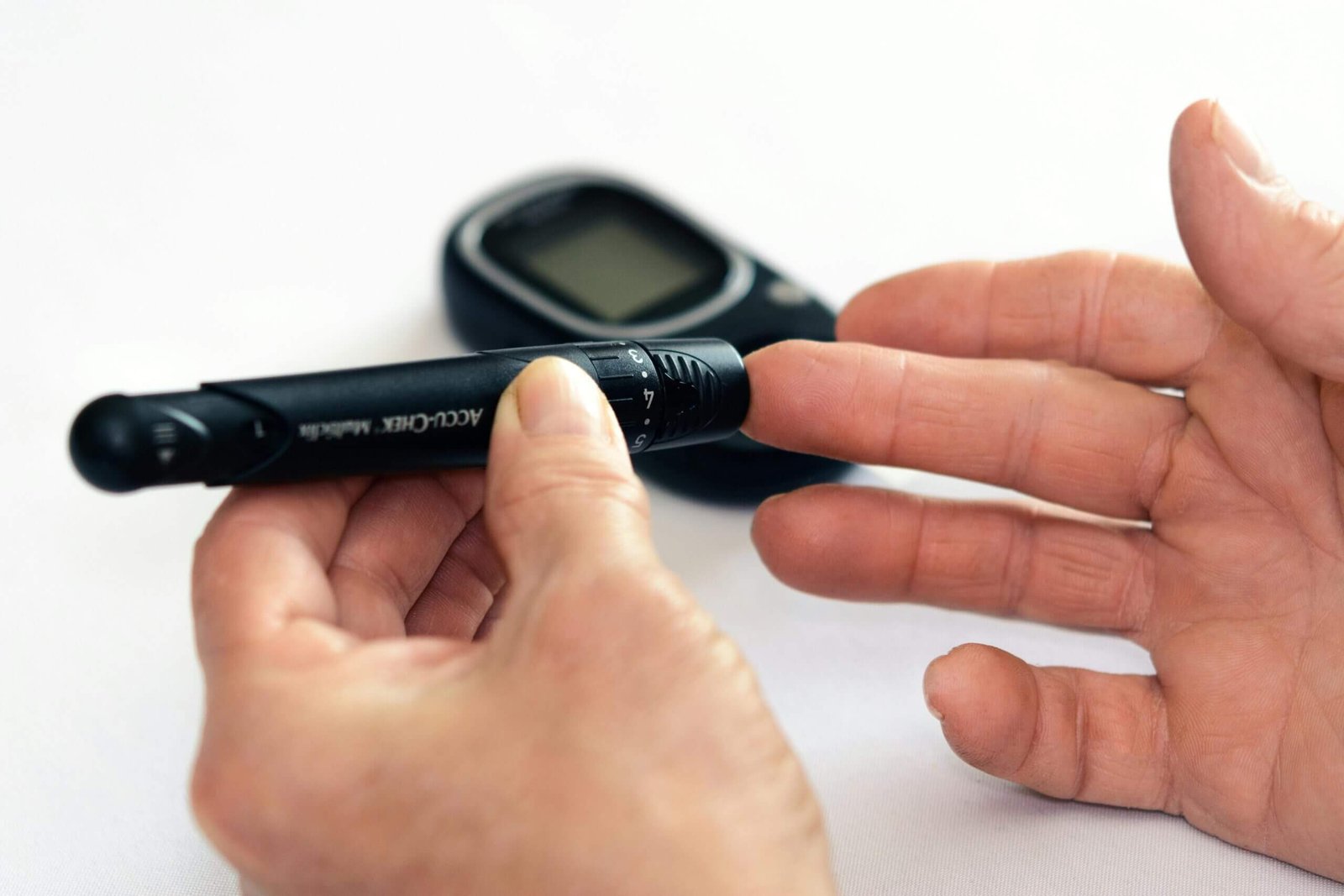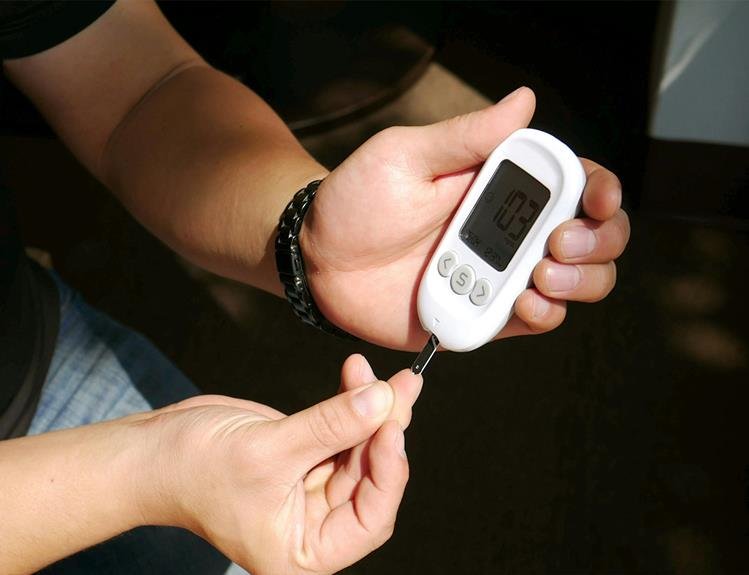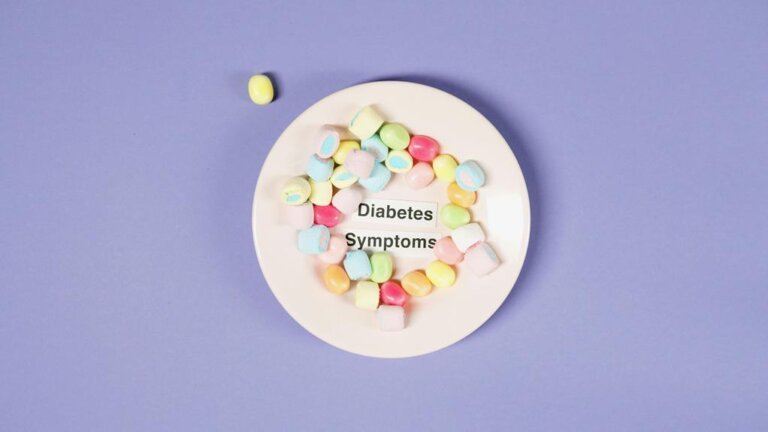Can diabetes cause rapid weight loss
Diabetes is a chronic disease that affects millions of people worldwide. It is characterized by high levels of sugar in the blood, which can lead to a variety of health complications if not properly managed. One of the common symptoms of diabetes is weight loss, which can occur rapidly in some cases. This phenomenon has raised questions among patients and health professionals alike – can diabetes actually cause rapid weight loss? In this article, we will delve into the relationship between diabetes and weight loss, exploring the potential factors and mechanisms that may contribute to this phenomenon. We will also discuss the importance of timely diagnosis and effective management of diabetes to prevent significant weight loss and its associated health risks. Whether you are someone who has been recently diagnosed with diabetes or simply curious about the potential effects of this disease on body weight, this article aims to provide you with a comprehensive understanding of diabetes and its potential impact on weight loss. So, let us explore this topic further and gain valuable insights into the complex relationship between diabetes and weight loss.
watch how he got cured of diabetes
Impact of diabetes on weight loss
Managing weight can be particularly challenging for individuals with diabetes. Diabetes can have a significant impact on weight loss efforts due to various factors. Firstly, fluctuations in blood sugar levels can affect appetite and metabolism, making it more difficult to achieve a calorie deficit necessary for weight loss. Additionally, some diabetes medications, such as insulin, can contribute to weight gain. Moreover, individuals with diabetes may face dietary restrictions and guidelines that can further complicate weight management. Therefore, it is essential for individuals with diabetes to work closely with healthcare professionals to develop personalized strategies that incorporate proper nutrition, physical activity, and medication management to achieve and maintain a healthy weight.
for more articles on diabetes click here
Understanding diabetic weight loss mechanisms
One of the key factors in understanding diabetic weight loss mechanisms is the impact of insulin resistance. Insulin resistance occurs when cells in the body do not respond effectively to insulin, leading to elevated blood sugar levels. This can disrupt the body’s ability to utilize glucose for energy and may result in increased fat storage. Weight loss in individuals with diabetes can be attributed, in part, to improved insulin sensitivity achieved through dietary modifications and regular physical activity. By adopting a balanced and controlled diet, focusing on foods with a low glycemic index and incorporating regular exercise, individuals with diabetes can enhance their body’s response to insulin and promote weight loss. Additionally, maintaining stable blood sugar levels through proper medication management is crucial in supporting the body’s metabolic processes and facilitating healthy weight loss. Understanding these mechanisms can empower individuals with diabetes to make informed decisions and effectively manage their weight while maintaining overall health.
Potential dangers of rapid weight loss
Rapid weight loss may seem enticing for individuals with diabetes looking to manage their condition and improve their overall health. However, it is important to be aware of the potential dangers associated with this approach. One of the primary concerns is the potential for muscle loss, which can occur when the body is deprived of essential nutrients and calories in an attempt to shed weight quickly. Muscle loss not only compromises overall strength and physical function but may also lead to a decrease in metabolic rate, making weight maintenance more challenging in the long term. Additionally, rapid weight loss can increase the risk of nutrient deficiencies, as restrictive diets often restrict certain food groups or limit calorie intake significantly. This can have detrimental effects on overall health and exacerbate existing health conditions. It is important for individuals with diabetes to prioritize gradual and sustainable weight loss strategies that emphasize balanced nutrition and regular physical activity, under the guidance of healthcare professionals.
Managing diabetes and weight fluctuation
Managing diabetes and weight fluctuation requires a comprehensive approach that focuses on balancing blood sugar levels and achieving a healthy weight. This involves adopting a well-rounded lifestyle that includes a balanced diet, regular physical activity, proper medication management, and ongoing monitoring of blood glucose levels. The goal is to create a stable and sustainable routine that supports overall health and manages both diabetes and weight effectively. It is important to work closely with healthcare professionals, such as registered dietitians and endocrinologists, to develop a personalized plan that considers individual needs, medications, and any potential complications associated with diabetes. By implementing a holistic approach, individuals can better manage their diabetes and achieve a healthy weight while minimizing the risk of further complications.
Balancing diet and medication for diabetics
Properly managing diabetes requires a careful balance between diet and medication. For individuals with diabetes, it is crucial to follow a well-planned, balanced diet that focuses on controlling blood sugar levels. This typically involves consuming a variety of nutrient-dense foods, including whole grains, lean proteins, healthy fats, and plenty of fruits and vegetables. It is important to work closely with a registered dietitian who specializes in diabetes to create a customized meal plan that aligns with specific dietary needs and medication requirements. Additionally, medication management plays a vital role in achieving optimal blood sugar control. It is essential to follow the prescribed medication regimen as directed by a healthcare professional and to regularly monitor blood glucose levels to ensure that the medication is effectively managing diabetes. By striking the right balance between diet and medication, individuals with diabetes can maintain stable blood sugar levels and lead a healthy, fulfilling life.
Incorporating exercise for healthy weight loss
Regular exercise is an important component of a healthy weight loss journey for individuals with or without diabetes. By incorporating physical activity into their daily routine, individuals can achieve greater success in achieving and maintaining a healthy weight. Exercise not only helps to burn calories, but it also improves insulin sensitivity and promotes cardiovascular health. Engaging in aerobic activities such as brisk walking, cycling, or swimming can help to increase metabolism and aid in weight loss. Strength training exercises, such as lifting weights or using resistance bands, can build lean muscle mass and boost overall metabolism. It is important to consult with a healthcare professional before starting any exercise program, especially for individuals with diabetes, as they may need to adjust their medication or monitor their blood sugar levels during physical activity. Finding enjoyable forms of exercise and making it a consistent part of a daily routine can contribute to long-term weight loss success and overall well-being.
Seeking medical guidance and support
In the pursuit of maintaining a healthy weight, seeking medical guidance and support is a crucial step, particularly for individuals with diabetes. A healthcare professional, such as a primary care physician or an endocrinologist, can provide valuable insights and personalized recommendations based on an individual’s specific health needs and medical history. They can assess the impact of diabetes on weight loss efforts and help establish a safe and effective plan. Additionally, medical professionals can monitor blood sugar levels, adjust medications if necessary, and provide ongoing support throughout the weight loss journey. By collaborating with a healthcare team, individuals can ensure that their weight loss goals align with their overall health and well-being.
Maintaining a healthy lifestyle long-term
Adopting and maintaining a healthy lifestyle long-term is essential for overall well-being, regardless of whether an individual has diabetes or not. It involves making sustainable changes to diet, physical activity, and overall self-care practices. One key aspect is establishing a balanced and nutritious eating plan that includes a variety of whole foods, such as fruits, vegetables, lean proteins, and whole grains. Regular physical activity is also crucial, incorporating both cardiovascular exercises and strength training to improve fitness and maintain a healthy weight. Additionally, managing stress levels and getting adequate sleep are important components of a healthy lifestyle. By prioritizing these habits and making them a consistent part of daily life, individuals can enhance their overall health and reduce the risk of chronic diseases, including diabetes.
In conclusion, while diabetes can cause rapid weight loss, this symptom alone does not necessarily indicate the presence of the disease. It is important to consult a healthcare professional for proper diagnosis and treatment, as uncontrolled diabetes can lead to serious health complications. Maintaining a healthy diet, regular exercise, and proper management of diabetes can help prevent rapid weight loss and maintain overall health and well-being. If you are experiencing rapid weight loss, it is important to seek medical attention to determine the underlying cause and address any potential health concerns.
FAQ
How does diabetes contribute to rapid weight loss in individuals?
Diabetes can lead to rapid weight loss in individuals primarily due to the body’s inability to properly utilize glucose for energy, leading to increased breakdown of fat and muscle tissue for fuel. Insulin deficiency or resistance in diabetes prevents glucose from entering cells, causing the body to use alternative sources of energy. This results in weight loss, as stored fat and muscle are broken down. Additionally, frequent urination and dehydration in diabetes can further contribute to weight loss. It is essential for individuals with diabetes to manage their condition carefully to prevent excessive weight loss and other complications.
What are the potential risks and complications associated with rapid weight loss in individuals with diabetes?
Rapid weight loss in individuals with diabetes can lead to fluctuations in blood sugar levels, increased risk of hypoglycemia, muscle loss, nutrient deficiencies, dehydration, and gallstones. It may also impact insulin sensitivity and medication dosages, potentially causing complications like ketoacidosis. Additionally, losing weight too quickly can strain the heart and increase the risk of cardiovascular issues. Therefore, a gradual, balanced approach to weight loss is recommended for individuals with diabetes to minimize these risks and maintain overall health.
Are there specific types of diabetes that are more likely to cause rapid weight loss?
Type 1 diabetes is more likely to cause rapid weight loss due to insulin deficiency, leading to the breakdown of fat and muscle for energy. Type 2 diabetes, on the other hand, is often associated with weight gain due to insulin resistance. Uncontrolled diabetes, regardless of type, can lead to weight loss as the body is unable to properly utilize glucose for energy. It is essential for individuals with diabetes to manage their condition through medication, diet, and exercise to prevent rapid weight changes and maintain overall health.
How can individuals with diabetes prevent or manage rapid weight loss while maintaining a healthy lifestyle?
Individuals with diabetes can prevent or manage rapid weight loss by following a balanced diet tailored to their specific needs, monitoring blood sugar levels regularly, engaging in regular physical activity, staying hydrated, and seeking guidance from healthcare professionals or dietitians. It is important to prioritize nutrient-dense foods, control portion sizes, and avoid skipping meals to maintain a stable weight while managing diabetes effectively. Consulting with a healthcare provider can also help in creating a personalized plan that ensures weight management without compromising overall health and well-being.
What are some common signs and symptoms that indicate rapid weight loss may be related to diabetes?
Some common signs and symptoms that indicate rapid weight loss may be related to diabetes include increased thirst, frequent urination, fatigue, blurry vision, and extreme hunger. Unexplained weight loss, especially when accompanied by these symptoms, can be a warning sign of diabetes and should prompt a visit to a healthcare provider for evaluation and testing. Early diagnosis and management of diabetes are crucial to prevent complications and promote overall health.






